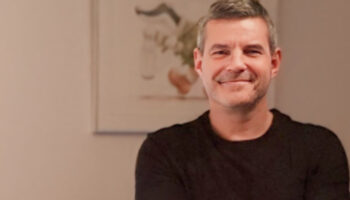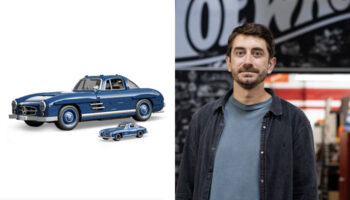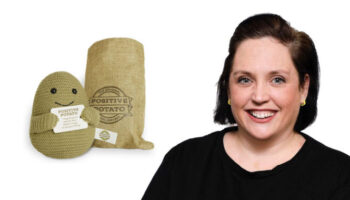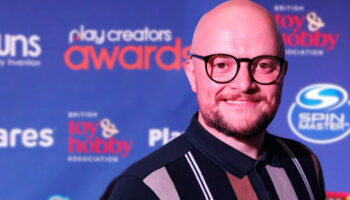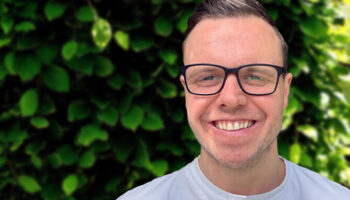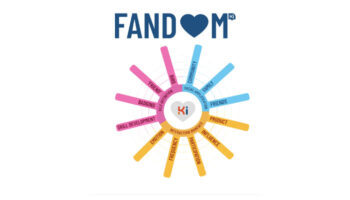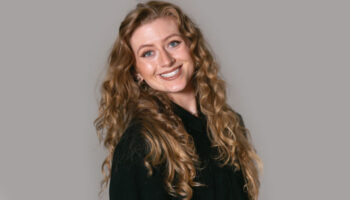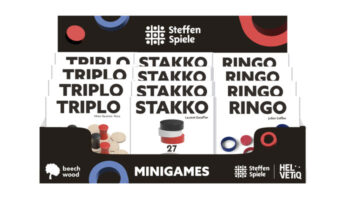Theora Concept’s Boaz and Gideon Coster discuss the secrets behind playthings old and new

Boaz, Gideon… Lovely to tie in. As brothers, you design, invent and license playthings at Theora Concept… And Theora Concept has a very long history! Tell us about it.
Boaz: Sure, Deej; thanks for having us. Our parents Theo and Ora Coster started the business close to 60 years ago. That’s how the company got its name: Theo plus Ora; Theora.
Gideon: And as it happens, both of us brothers are to blame for their career choice…
Oh? How so?
Gideon: Our mom had to stay in bed during pregnancy – with me inside. Then Boaz came to her and asked, “Mom, where’s Jerusalem?” Well, Ora was an art teacher and she quickly drew a map of Israel with some cities and other places. Then she added a die and pawn, and sent Boaz to play and travel in the Israel of 1965.
She made up a game on the spot?
Boaz: Yes, more or less. Then a friend of our parents – who worked in one of Israel’s petrol-station companies – came to visit, and saw the game. He thought it may be a good idea to hand it out as a giveaway to drivers filling their petrol tanks. That didn’t mature in the end, but our parents thought it was an interesting line of work.

Wow. Back then, that would’ve been an extraordinary way to start out with that line of thinking…
Gideon: During the 60s, they made many small promotional items for businesses. So at the time, they used to develop, design, and produce all of these products.
Boaz: At some point, though, they developed some games that weren’t a great fit for giveaways. But a Dutch friend – Jaap Bar David, who was a book agent – saw a few of those games and asked our parents if he could take some to a toy fair. He took three concepts with him… To our parents’ surprise, he came back with three contracts! That was the beginning. And we were born and raised into it.
Fantastic! So, just to help me orientate myself… What have been some of the company’s best-selling – or best-known – products over the years?
Boaz: During the past 60 years, Theora’s licensed around 200 different game and toy concepts. The most well known are Guess Who? of Hasbro, Pop-it and Go-pop with FoxMind, Zingo from ThinkFun, Stackrobats from Ravensburger and Travel Yahtzee and PlayOnWordZ – also with Hasbro.
Gideon: A lot of people might zero in on Guess Who?, but really the first best seller was the Icetix in the 70s.

Icetix? That rings a bell – is that a construction toy? Like an ice-lolly stick; a popsicle stick?
Gideon: Yes! One day, our parents went to visit a friend. Mom saw his daughter playing with wooden popsicle sticks, gluing them together and building a house. On the way home, she said to our dad, “Theo, if only we could make those ice-cream sticks out of plastic, the kids wouldn’t need to use glue to stick them together…”
Oh, this is great… Great!
Gideon: Our dad took that mission very seriously. In the following months, he developed popsicle sticks that could connect to each other in six different ways. Naturally, the Dutch agent then took that invention with him to New York Toy Fair.
Boaz: This is where luck comes into it! It so happened that he got stuck in one of the busy elevators in the toy building, at 200, 5th Ave, with a buyer from Borden Dairy Company. He mentioned he had an interesting idea to show Borden. They met later that day, and – in a short while – Borden licensed the ice-cream stick for 12 years. Calling it Elsie Stix, they sold 12 billion sticks. To this day, many kids growing up in the USA during the 70s are very familiar with the STIX, as we call them.

Fantastic! I like that there’s a terrific observation in that story, a lot of hard work, a bit of luck… And some follow-up! So Icetix is the product that put Theora on the map?
Gideon: Yes. Our parents got a monthly royalty check from that. It was enough, so they both quit their jobs – as an art teacher and as a printing-paper expert – and then dedicated their time to inventing toys and games.
Wonderful. And to what degree does it remain a family company?
Gideon: It’s still a small family business. Boaz, Aliza – that’s Boaz’s wife – and I are running the company. We grew up in a family business, so we know how important it is to support our heritage and the family legacy. For many years, though, we’ve not only created our own concepts, but also worked on, developed and licensed many playthings with very talented Israeli and international designers… Ideas people from various alleys of life.
You look to work with external inventors, then?
Boaz: Sure! We collaborate with many colleagues and inventors, some 30 licensed ideas, mostly are from collaboration with other creators and inventors. Recently we’ve had Trestle Tracks, Drop Shot, and Spinny Pins with Fat Brain? Rubik’s Orbit with Rubik’s, and SHIRO KURO from Kawada… These are just a few!
And what advice would you give new inventors looking to get an idea off the ground?
Gideon: If you have an idea, go for it! But try and make an initial model and think about it; see what would make kids globally look for that toy or game… Does it have a “wow” factor as part of it? Would it be on or off trend? Also, don’t be fooled by your friends or family saying, “That’s an awesome idea!” Always check with a wider audience. Usually, there’s lots of work ahead. Figure out if it’s completely safe, and perform a deep search to ensure it’s unique.

And following up on something that came up earlier, what are the upsides of having a well-loved invention like Guess Who? in your back catalogue?
Boaz: It gives us a huge pride to be able to enter a toy store almost anywhere on the globe and see Guess Who?, and watch the huge number of kids enjoying it. We’re overjoyed each time the game is shown with very different cultural connections, or when a kid or a parent somewhere around the world is amazed to meet a real person that created that game they love so much.
Are there any downsides?
Gideon: I’m not sure there are! But at the same time, we’re always working with our partners at Hasbro to keep the brand alive and kicking, maintaining the matrix of the game, and finding ways more kids can enjoy this 43-year-old idea. For example, we can give a tip to Mojo readers: you can level up your Guess Who? game by playing with two cards each.
Is that right?! Gosh; I’ve got to try that! And picking up on something you said about your mum… I love it when I find examples of ideas that started out by accident. In that respect, can you tell us the story of Magimixer?!
Gideon: Oh, yes! Sure! Our mom – who was the inventor of most of the ideas – saw a die that was caught between two plastic stencils…
Stencils?
Gideon: Yes: you know the kind of plastic stencil that lets you draw different-size circles?
Oh yes! I know what you mean.
Gideon: Well, our mom saw a die trapped between two of those. And she noticed the die was protected: it was held in place, but it could still move freely.

And when was this, roughly?
Boaz: This was during the 1973 October War. Our dad was in reserve duty, so Ora made a small prototype using thick cardboard. When our dad came back safe, he made a flower-shaped plastic model on his pantographic engraving machine. That was licensed and manufactured – identically to that original design – by Milton Bradley, later part of Hasbro.
Terrific. And again: a great example of observation. Now… Given that you’ve both been in the business for so long, this might be a tricky question! But what do you think you would be doing if you weren’t doing this?
Gideon: I’m a software programmer by profession, so if I hadn’t grow up in this family, I guess I’d be doing that.
Boaz: Further to my toy-design studies in the London College of Furniture, I studied journalism in Tel Aviv University. So there’s that… But I might have chosen to make a PHD in caricatures or linguistics…
Caricatures or linguistics?! Okay! Okay. I wasn’t expecting that! We need to start wrapping this up, but let me ask you a couple more questions. First, what do you think is the secret of creativity?
Boaz: Having an open mind and letting your imagination go, freely… If someone has an idea in their mind, there’s always a way it can take shape and happen in the real world. As our mom said, most ideas are things that already exist, you just need to collect, mix, and match and re-assemble them in another way or another order…

Yes; I think that’s what’s terrific about the story of the die between the stencils: very commonplace, very everyday things. When she combined them, though, it’s completely new! Really interesting. So… Conversely, then, what kills creativity stone dead?
Boaz: We guess boredom and routine, mainly. But also if you’re constantly stuck on – or in love with – a single idea or concept, you won’t move on.
Brilliant. Alright, chaps! I’ve enjoyed this enormously but we need to wrap it up. So what’s the most interesting object in your offices?
Boaz: I would say the pictures of our late parents. They both passed away in the last three years. And also their books…
Their books? Books they wrote?
Gideon: Yes. Ora wrote a poem book called ‘There Are Friends’ in Hebrew. Theo wrote his memoirs of surviving the holocaust as a classmate of Anne Frank. That’s called ‘We All Wore Stars’.
Oh, my… What beautiful titles. Gentlemen, thank you so much for your time; what a pleasure to tie in again. Thank you so much!

–
To stay in the loop with the latest news, interviews and features from the world of toy and game design, sign up to our weekly newsletter here


